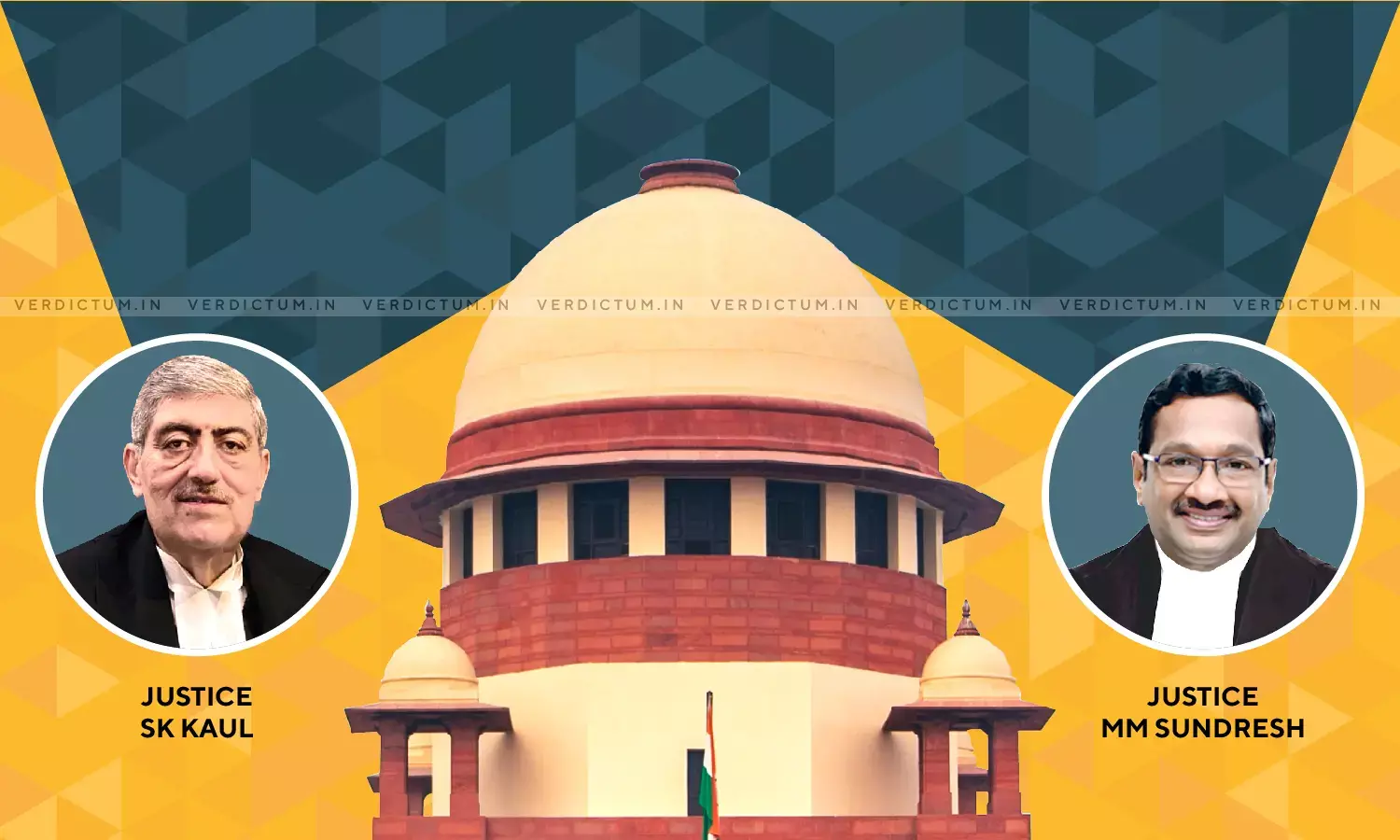Supreme Court Grants Last Opportunity To Centre To File Reply To PIL Seeking Identification Of Minorities At State Level

The Supreme Court today granted the "last opportunity" to the Centre to file its reply on a PIL seeking directions for framing of guidelines identifying minorities at the state level as Hindus are in a minority in 10 states and are not able to avail the benefits of schemes meant for minorities.
A Bench of Justice Sanjay Kishan Kaul and Justice M M Sundresh asked the Centre to file its response within four weeks after Solicitor General Tushar Mehta sought more time.
Senior Advocate C S Vaidyanathan, appearing for the petitioner, sought transfer to the Supreme Court of the petitions on similar issue which are pending before various High Courts.
The Apex Court also allowed the plea seeking transfer of cases from several high courts to it against the Centre's notification to declare five communities, Muslims, Christians, Sikhs, Buddhists and Parsis as minorities and tagged the matter with the main petition.
Petitioner, Advocate Ashwini Kumar Upadhyay sought a fixed date of hearing from the Bench but the top Court posted the matter after seven weeks.
"Look at the environment. Let it stabilise. Next week we are taking only urgent matters. We do not know how things will work out in the next two-three weeks. Let things stabilise," the Bench said.
Upadhyay in his plea has also challenged the validity of Section 2(f) of the National Commission for Minority Education Institution Act 2004 for giving unbridled power to the Centre and being manifestly arbitrary, irrational and offending.
The plea, filed through Advocate Ashwani Kumar Dubey, said the denial of benefits to the "real" minorities and arbitrary and unreasonable disbursements under schemes meant for them to the absolute majority infringe upon the fundamental right under the Constitution.
"Direct and declare that followers of Judaism, Bahaism & Hinduism, who are minorities in Laddakh, Mizoram, Lakshdweep, Kashmir, Nagaland, Meghalaya, Arunachal Pradesh, Punjab and Manipur, can establish & administer educational institutions of their choice in spirit of the TMA Pai Ruling," the plea said.
The Apex Court in the TMA Pai Foundation case held that the state is well within its rights to introduce a regulatory regime in the national interest to provide minority educational institutions with well-qualified teachers in order for them to achieve excellence in education.
Quoting Article 30 of the Constitution, the plea said that minorities whether based on religion or language shall have the right to establish-administer educational institutions of their choice.
"Rational basis of declaring certain religions as minority by central government as they have less population in the states is contravened when benefits of schemes for minority are acquired by those religious minorities in states where they are in majority and those religious communities who are actually minorities are not been given equal status," the plea said.
The petition said that denial of minority rights to actual religious and linguistic minorities is a violation of right of minority enshrined under Articles 14 (equality before the law) and 21 (no person shall be deprived of his life or personal liberty except according to procedure established by law) of the Constitution.
With PTI inputs

